Carlos Sastre's cycling dream team
2008 Tour de France winner picks his nine-man team
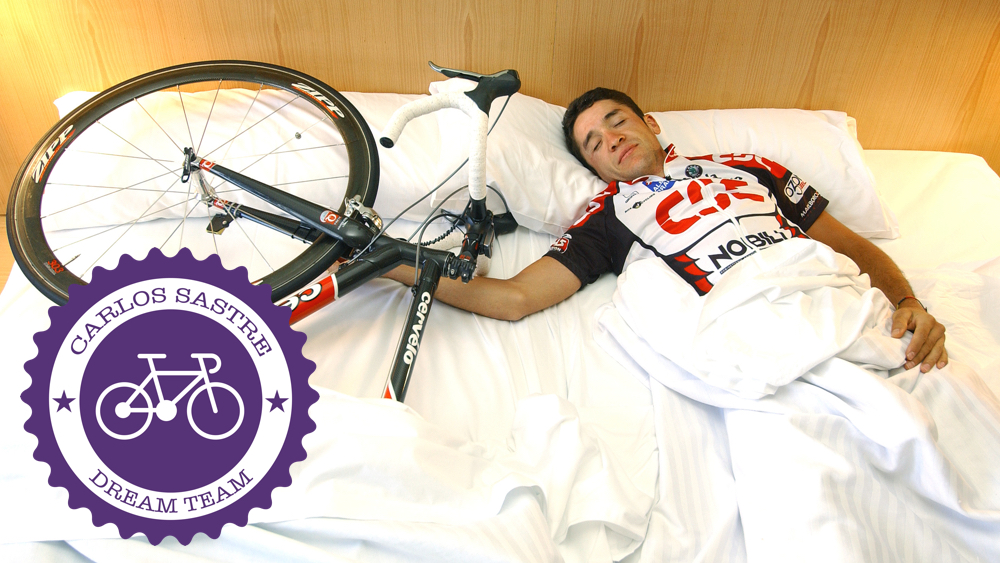
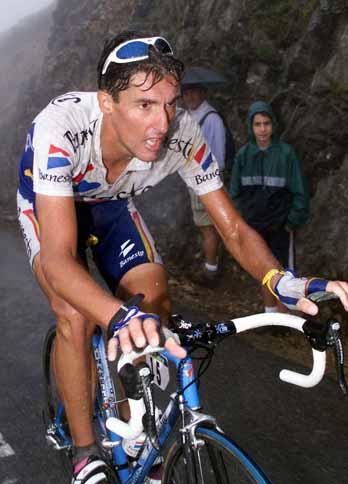
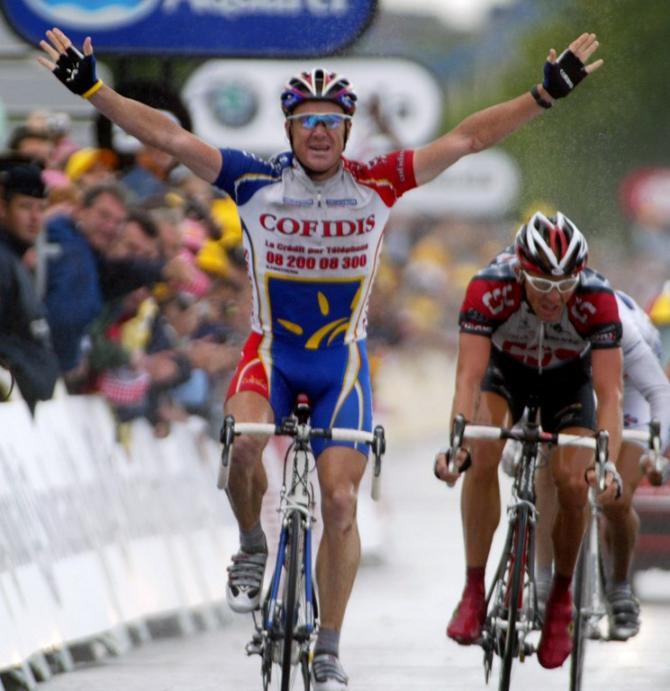
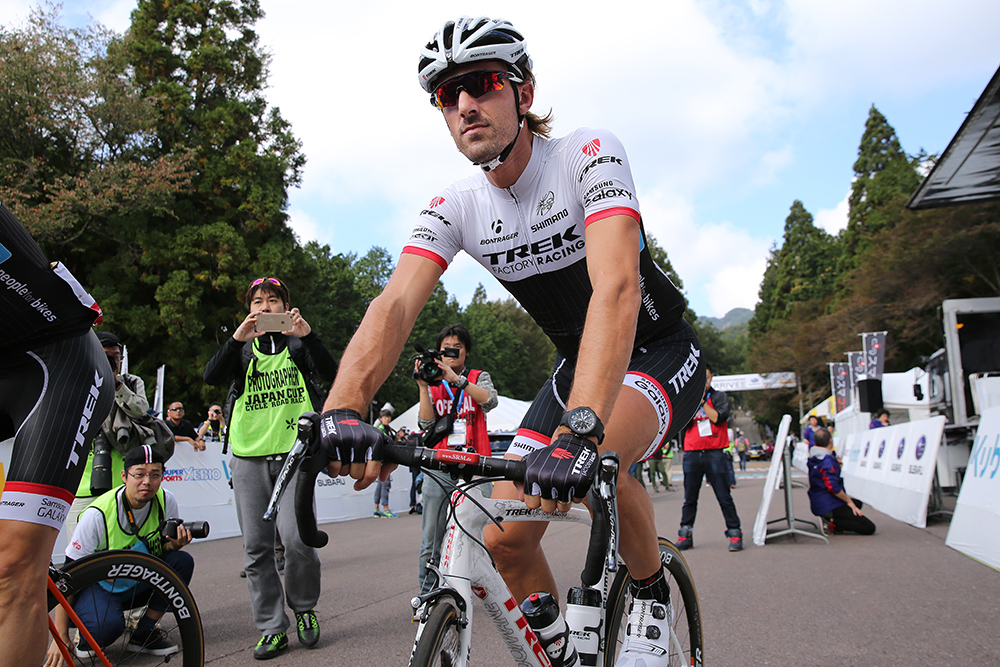
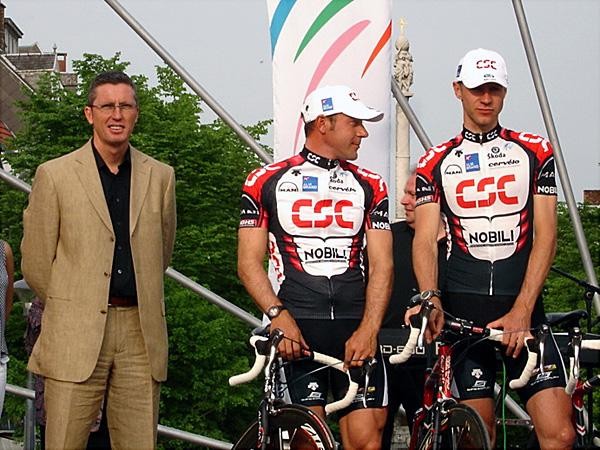
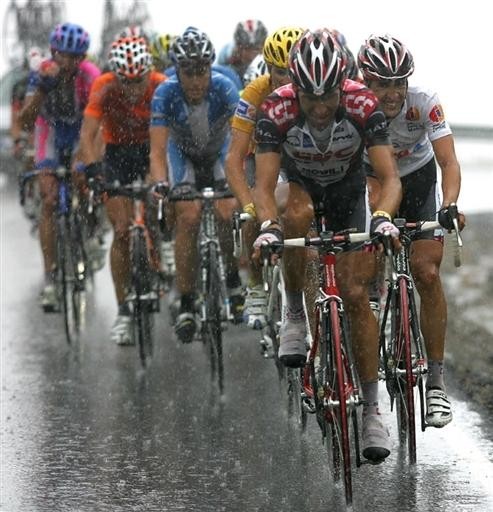
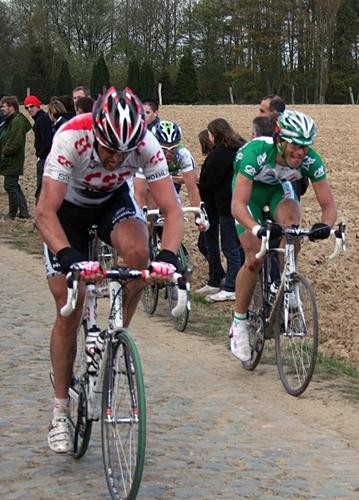
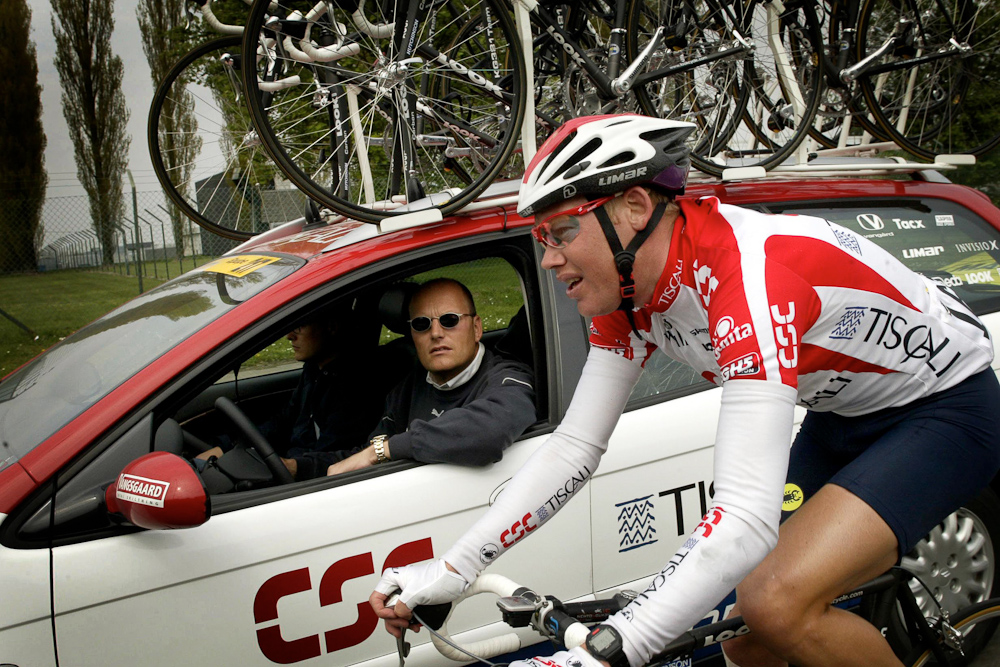
In a new run of features, Cyclingnews sits down with some of the sport's well-known personalities as they pick their cycling dream teams. This week it's the turn of 2008 Tour de France winner Carlos Sastre.
- Dream teams must feature nine riders, one of which can be the rider selecting the team. In which case they pick eight riders to join them.
- The riders picked must have all ridden with the person picking the team. That means you can’t just pick the eight or nine best riders of a generation.
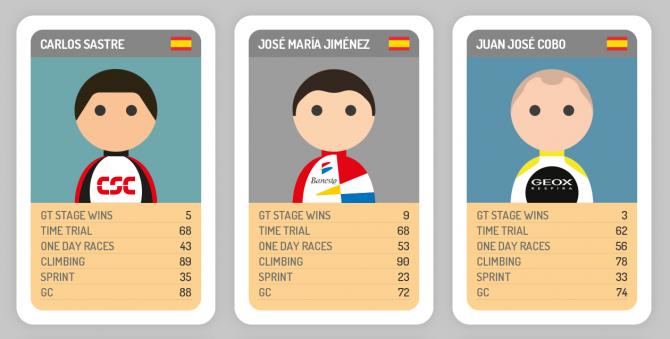
Image courtesy of Pro Cycling Trumps
Team leader: Carlos Sastre
When I started riding as a pro, he was already on top of his game and I was the new little kid on the block who’d just arrived, and I looked up to him a lot. But even when I got better on the climbs we never had a real battle in the mountains of the kind I’d really have liked, and that’s something I regret, even now.
Climber: Juan José Cobo
Cobo was a hugely talented climber - he won on the Angliru. In fact he won the Vuelta there and he dropped both Chris Froome and Bradley Wiggins, half-way up the Angliru, in the process. How many riders were able to do that? As a leader, he wasn’t good at all, probably because he didn’t have a nasty enough side to him, and to be a good leader, sometimes you have to be very direct and take tough decisions about your team-mates. But as a climber, he was ideal.
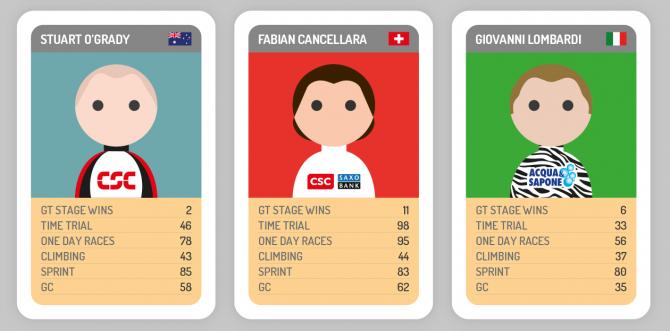
Image courtesy of Pro Cycling Trumps
Get The Leadout Newsletter
The latest race content, interviews, features, reviews and expert buying guides, direct to your inbox!
If I was fighting for a Grand Tour win, I wouldn’t want a sprinter like Mark Cavendish, because he needs a whole team based around him. Stuart, on the other hand, was not just able to race in sprints by himself, he was also a great guy to have there for doing the hard work on the flatter and hillier stages. He was a very intelligent, battle-hardened rider, who always knew how to be in the right place at the right time and who you could trust to guide you through the peloton in the fast sprint finishes. He could read races brilliantly and he could work well in breaks. Then there’s all the success he had in the Classics, but that’s another story…
The same goes for Fabian as with O’Grady for the Classics, obviously, only more so. But my main memory of Fabian in a Grand Tour is how he could put aside his personal goals in the 2008 Tour de France and help me bring home the yellow jersey that year. Not just very professional, but somebody who will work his finger to the bone for his team-mates and I valued that in him - his willingness to sacrifice himself for his team-mates. And someone like Fabian, who not only could win huge races but also help others win - very few riders are capable of doing that.
One of my most enduring memories of Cancellara came from the Vuelta a España in 2006 and the opening team time trial in Málaga, which CSC won [by seven seconds over a 7km course from Caisse d’Epargne - Ed.] It was a very technical start, with two or three very difficult corners in the first part of the course and even a chunk over sanded-up roads, then it straightened out, but Cancellara was more than a match for all of it. If the rest of us were taking turns of 50 or 100 metres, he’d do a kilometre. He absolutely hammered it, leading for nearly half the course at the head of the line, and just before the finish, there were two little corners and he pulled off there. All the rest of us had to do was ride up the final straightaway and then we were home.
Brilliant at behind-the-scenes work. He knew everybody in the peloton and could get along with all of them. A very intelligent rider and not afraid of giving orders to anybody. I particularly remember Giovanni from the Vuelta a España [2005, where Sastre finished second - Ed.]. He did a really good job there, was always keeping me in a good position for the sprints and stayed calm, too. Having him there meant I could ease back a little - and that was true in any race.
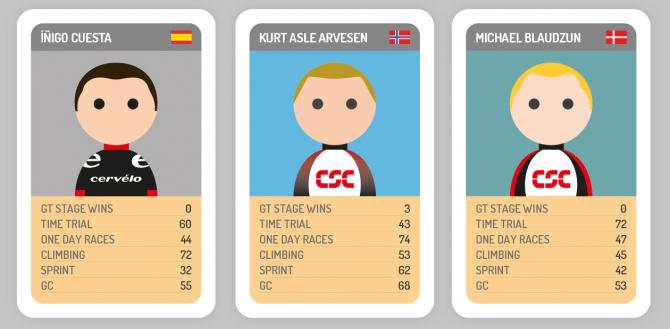
He knew how to listen to other riders and take on board what they wanted. He was so experienced that he had seen so many different types of riders and at the same time he was a very clear communicator so he knew how to get through to them, how to motivate them and get them to give that little bit extra which can sometimes make all the difference. Not only that, he wasn’t a rider who felt overly superior or inferior to anybody else, which again really helped him get his messages across.
He never got many wins and not many people knew of him very well, but when he was on a good day, Michael was one of the best domestiques out there. I raced with him in several Vueltas and a Tour or two and he had a capacity to ride himself into the ground for his team-mates you very rarely came across.
Cyclingnews is the world's leader in English-language coverage of professional cycling. Started in 1995 by University of Newcastle professor Bill Mitchell, the site was one of the first to provide breaking news and results over the internet in English. The site was purchased by Knapp Communications in 1999, and owner Gerard Knapp built it into the definitive voice of pro cycling. Since then, major publishing house Future PLC has owned the site and expanded it to include top features, news, results, photos and tech reporting. The site continues to be the most comprehensive and authoritative English voice in professional cycling.